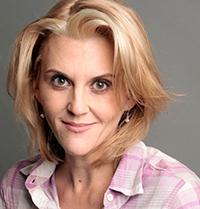In a special event sponsored by the Iowa Nonfiction Writing Program, Bedell Distinguished Visiting Professor Meghan Daum will read from her work, The Unspeakable: And Other Subjects of Discussion, at Prairie Lights Bookstore on January 31st at 7pm. Author Roxane Gay says, “Daum writes with confidence and an elegant defiance of expectation . . . There is no doubt Daum is a brilliant, incisive essayist. I would follow her words anywhere.”
In advance of this reading, we wanted to sit down with Daum to ask a few quick questions about her writing, and to prepare readers and listeners for the event.
***
Thank you so much for speaking with us today! We wanted to ask a few question about the specific event, as well as the collection.
Could you describe a few of the driving forces/themes behind your collection of essays The Unspeakable: And Other Subjects of Discussion?
Meghan Daum: The essays in The Unspeakable are guided in large part by ideas having to do with sentimentality in American life. The ways in which we are under tacit pressure to feel certain ways (and by “we” I guess I mean westerners but particularly people in the United States involved in the pursuit of what we might think of as “normal” ambitions and goals) is a dominant feature of contemporary emotional life. What we’re supposed to feel sad about, what we’re supposed to consider to be fun, what we’re supposed to find pleasurable or painful or meaningful; these are all very much in the eye of the beholder (the heart of the experiencer?) Yet, as sociologists like to say, there are “emotional scripts” that we’re expected to follow. I’m not a sociologist. But as a personal essayist who’s also a journalist and a longtime opinion columnist and, moreover, a bit of a contrarian when it comes to accepted wisdom, I’m constantly questioning those scripts. So the essays, all in their own ways, are invitations for readers to look at their experiences and reactions to those experiences more honestly. The essays cover a range of subjects—some overtly serious and some overtly silly—but the questions they are ask draw from the same existential well. What does it mean to be an adult? What happens if we don’t feel sad enough in the face of the death of a parent? What if the things the culture has deemed precious and central to the human experience—having children, caring deeply about certain kinds of food or music, even the entire concept of “fun”—just don’t interest you all that much? What if (and this is perhaps the most fundamental question of the book) surviving a crisis doesn’t make you a better person? These are often considered unaskable questions with unspeakable answers. But this book asks them again and again.
Do you have a specific "set list" of excerpts or pieces that you will read at Prairie Lights? How do you decide what to read for an audience?
A set list! (Speaking of music.) It kind of depends on the crowd and how I’m feeling that day and probably various other factors I’m only partly conscious of. There’s one essay in the book that involves a lot of movie stars and other celebrities and I used to do it at readings a lot until I realized that some college audiences were young enough that they didn’t know who half of these stars were! It was shocking, since these are celebrities that were absolute household names not too long ago. But the pace of change in entertainment culture goes at light speed now. So sometimes I have to eyeball the audience when I get up to the podium and decide whether to read from that essay. We’ll see! Maybe I’ll even read from some new work (not making any promises, mind you.)
What is one thing the audience should know about your work before they attend the reading?
The one thing the audience should know about my work before attending the reading? That in sharing my ideas I’m making an offering rather than making a point. I’m not trying convince anyone of anything. I’m more just saying “hey, what if we looked at it this way?” Even as a newspaper opinion columnist, my approach was not persuade readers but to invite them to think alongside me as I looked at the world through my own (sometimes strange) lens and tried to make connections that were hopefully surprising or through provoking. Also, audiences should know that if they find something funny chances are it was meant to be funny. It’s okay to laugh. I want you to laugh! It amazes me when people talk about sitting in an audience and wanted to laugh but being afraid of seeming rude. Good lord! If the audience isn’t laughing at my jokes, then I have to laugh on my own behalf. And believe me, no good can ever come from that.
***
